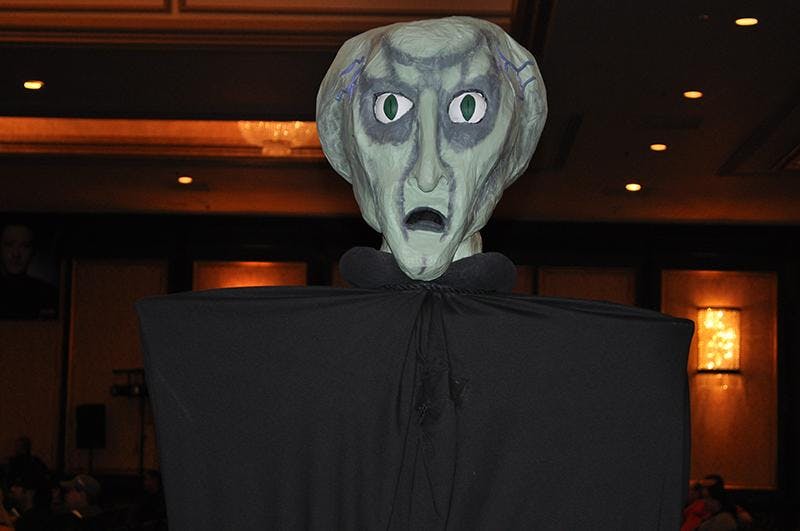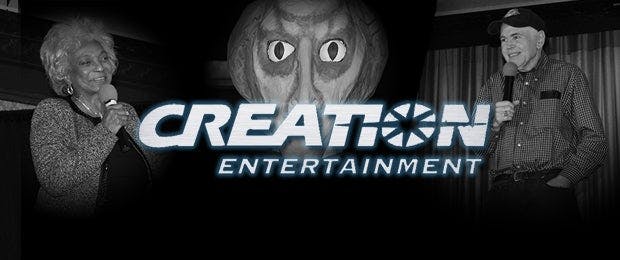
It was Saturday, November 17, 2012, and day two of Creation Entertainment's Official Star Trek Convention at the beautiful Westin St. Francis in the city by the bay, San Francisco. That San Fran is the home of Starfleet Command was not lost on this eager, enthusiastic audience on hand to join in the fun and festivities that had launched the day before with Trek luminaries that included Jeff Combs, Marc Alaimo, David Gerrold and Morgan Gendel.Upon entry one was first treated to two ornate hotel ballrooms packed to the gills with Trek and sci-fi vendors hawking all types of wonderful collectibles, including original art, action figures, costumes, jewelry, T shirts, drinkware and much more.Creation Entertainment co-CEO Adam Malin launched the show with an energetic opening address, clearly pumped up by the capacity crowd (the entire weekend was a sold-out event, quite an accomplishment given the vast size of their meeting space, which sprawled over two floors of the hotel in elegant ballrooms that echoed the gilded age when they were built and embellished with frescoes, gold leaf and magnificent detailings).
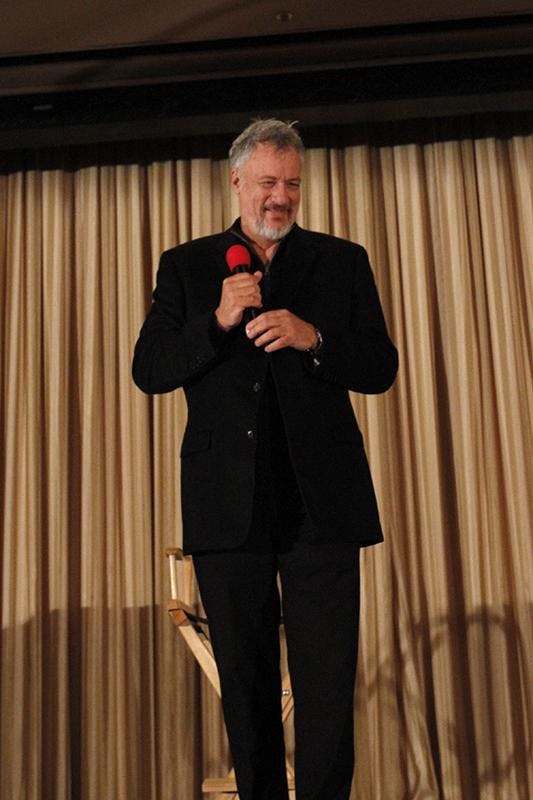
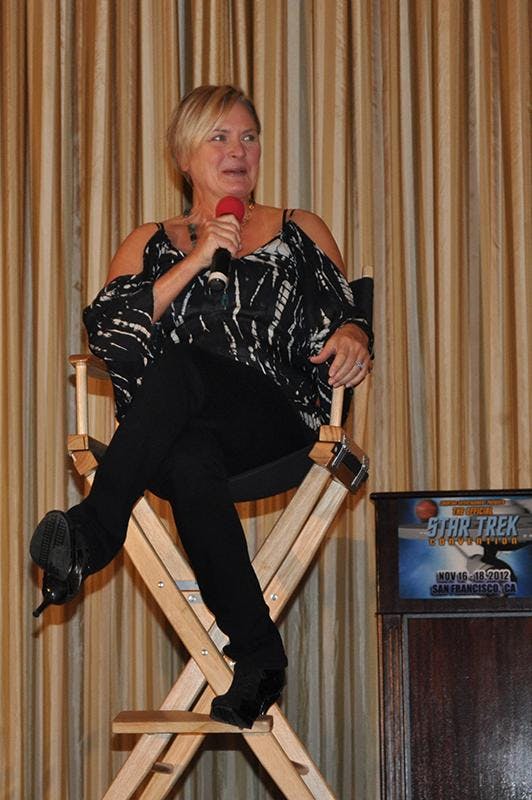
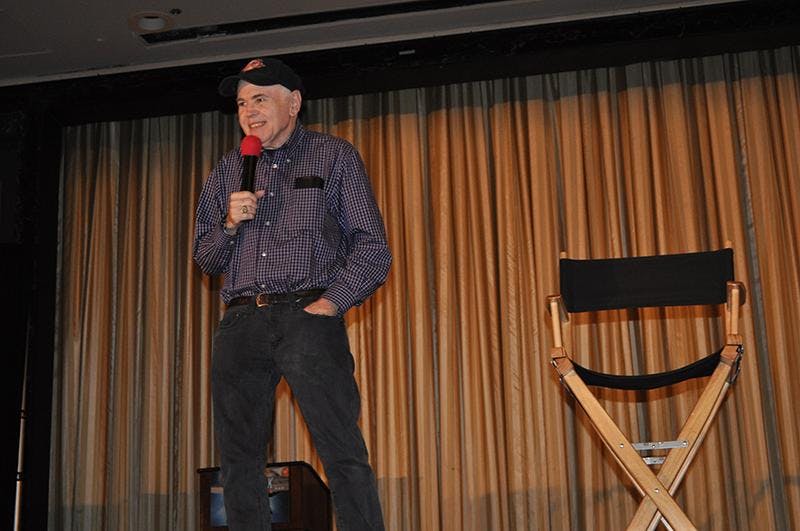
Then it was time for the arrival of Walter Koenig, fresh off his triumphant Hollywood Walk of Fame ceremony, where he finally received his Star. He reminisced about working with Celeste Yarnall on TOS episode, “The Apple.” An attendee noted a Russian remark Walter made in Star Trek III. He acknowledged that both his parents were Russian (Lithuanian), but that he didn't actually know now to speak the language! James Caan, Dabney Coleman and Christopher Lloyd were mentioned as peers in his acting class.On acting with a dialect: he described the English system as a thing where they start with the outside of a character as being the springboard to the inner self of the character. He says that is how he approached a character like Chekhov. He also bemoans the so-called experts out there who tell him he doesn't know how to speak in the proper dialect. He says that's how his father spoke and that's good enough for him! On filming in the Alameda area of the bay in Star Trek IV: he asked an actual passerby where Alameda was located, and the spontaneous exchange made it into the film. Regarding the filming of Star Trek V: expecting the worst from director Bill Shatner, he was pleasantly surprised to find Bill solicitous and supportive. He also enjoyed filming the fan film Star Trek: Of Gods and Men. As a final remark, he mentioned a surgical procedure he underwent a few years ago. Upon awakening from the anesthesia, he heard the words of the surgeon in the familiar Scottish brogue: "I got a wee bit of bad news for you, laddie". Walter left to a standing ovation.
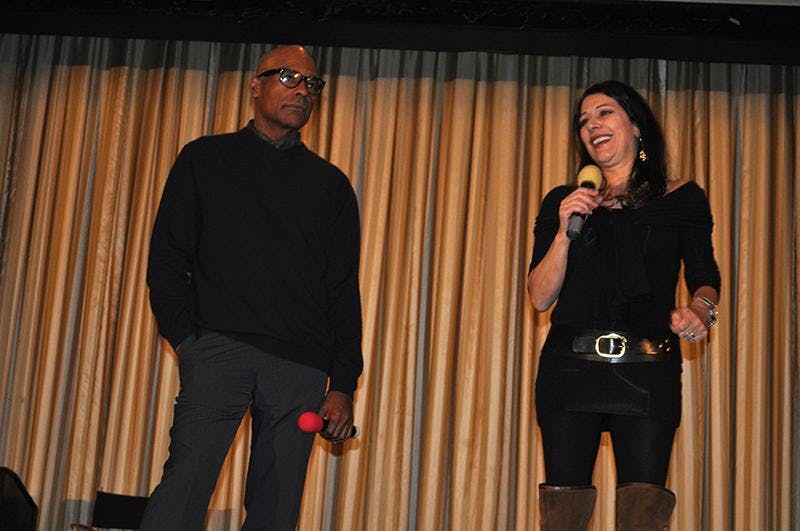
Following him was the intrepid team of Marina Sirtis and Michael Dorn (both look great). Marina, typically possessive and bossy, wasted no time launching into poor Michael as they discussed how they got to know each other during the early days of TNG. Michael says he hated her initially until she cooked a nice meal for him. As usual, the way to a man's heart is through his stomach. She noted that Michael is now a macrobiotic vegan and would never eat what she served to him then. She also insisted that he take his Klingon teeth out of his mouth before Worf kissed Troi. As friends, it was embarrassing for them to actually kiss, and Michael made a guttural groan when they did. Marina wondered whether that was Worf or Dorn making that noise.Marina dissed the DS9 set, calling it a morgue (meaning the cast was so serious and focused) versus TNG set where everyone was laughing and having a great time (the two shows existed across the lot from one another for two years together). On Voyager Marina had a great time working with Bob Picardo. Marina complained about Michael getting a voiceover job on Hotel Transylvania when it was she that got him the job. When the next attendee had a question for Marina, she pushed Michael out of the way to answer who was the better kisser, Worf or Riker. While not commenting on Jonathan, she said that "Dorny" has the lips. She also divulged that some of the male members of TNG cast wore girdles.
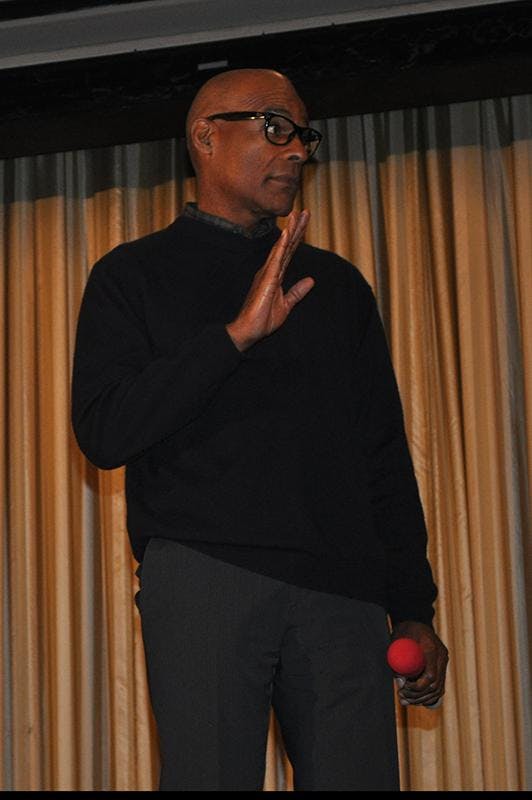
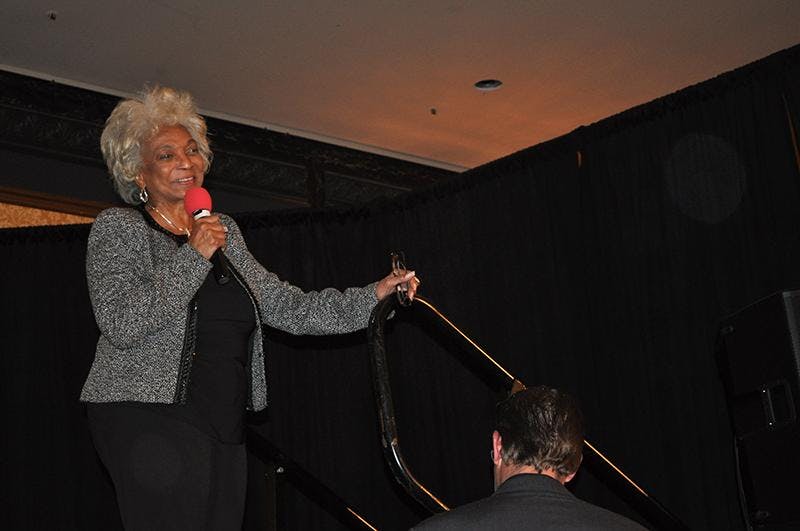
The final event of the day was a dazzling Costume Competition with close to 50 entries. The winners included Dr. Who, Lal, a sinister but beautiful Romulan Commander, and the towering alien dummy Balok of “The Corbomite Maneuver.” They were amazing winners and entries and brought a truly memorable day to a truly memorable conclusion.
